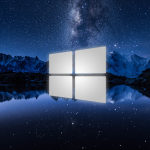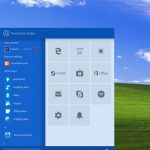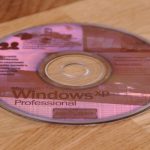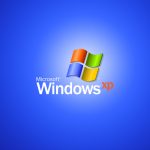You can now download 5K wallpapers from the '2018 Editions' of Windows 7, XP and more

As you’ll know if you’re a frequent visitor to BetaNews, YouTuber Kamer Kaan Avdan has been creating some fantastic concept videos for various operating systems of the future, including Windows 11, iOS 12 and Android 9.0.
Most recently though, it’s his modernizing of Windows 7, Windows XP and Windows 95 which have really caught people's attention. If you’ve watched any of his videos, and thought how cool it would be to actually run one of those operating systems, the bad news is they remain purely concepts for now. However, you can customize your existing OS with some wallpapers from his most popular creations.
Windows XP 2018 Edition is the operating system Microsoft should be making

Despite Microsoft ending support for Windows XP back in 2014, it’s still in use around the world. The latest usage figures from NetMarketShare give the vintage OS a decent 6.13 percent share of the market, and it’s still to be found in many businesses.
The OS first appeared 17 years ago and the final service pack (SP3) came out a decade ago. Compared to Windows 10, XP now looks incredibly dated, and lacks many of the modern features we take for granted. But what if Microsoft updated it?
Mozilla announces extended end-of-life support for Firefox under Windows XP and Vista

Mozilla has revealed that support for its Firefox web browser on Windows XP and Vista is coming to an end.
The organization had previously announced that anyone using these old versions of Microsoft's operating system would be moved to the Firefox Extended Support Release (ESR). This meant that support would be offered until "at least" September this year. Now the final kill date has been revealed -- and it's later than expected.
Blizzard: World of Warcraft, StarCraft II and more will stop running under Windows XP and Vista

Microsoft hasn't supported Windows XP and Windows Vista for a while (mainstream support ended eight and five years ago, respectively), but other technology companies have continued to support their own software under these ancient operating systems.
Now, however, Blizzard has announced that it is dropping support for the OSes in a number of its games. The list includes names such as World of Warcraft, StarCraft II and Diablo III, and the change is coming later this year.
How to get regular free security updates for Windows XP and Vista

Two months ago, in an effort to fightback against the WannaCry ransomware, Microsoft took the 'highly unusual' step of releasing a patch for Windows XP, the ancient operating system it stopped supporting back in 2014 (even though, as it turned out, it was really Windows 7, not XP, that was to blame for the spread of the devastating malware).
Then just two weeks ago, Microsoft included Windows XP and Vista -- another operating system it no longer supports -- in June's Patch Tuesday updates. Despite these recent actions, neither XP nor Vista are going to receive regular security updates from Microsoft, meaning users still running either OS remain at serious risk. However, the good news is there are a couple of tricks you can use to continue receiving security updates for both XP and Vista.
Microsoft includes Windows XP and Vista in June's Patch Tuesday updates

Last month Microsoft made the decision to issue a "highly unusual" patch for Windows XP. Despite the fact the operating system has not been supported for some time, the patch was released in an attempt to thwart the WannaCrypt ransomware attacks.
Now, in an even more unusual move, Microsoft has chosen to include Windows XP in this month's Patch Tuesday. Windows Vista is also included in this batch of security updates which Microsoft says should address the "elevated risk of cyberattacks by government organizations."
It's Windows 7 -- not Windows XP -- that's to blame for the spread of WannaCry ransomware

It’s been a week since the WannaCrypt/WannaCry ransomware cyber attacks began, and the repercussions are still being felt. It became clear quite early on that the ransomware was hitting older Windows systems hard (Windows 10 wasn’t affected), with a lot of talk focusing on the number of at-risk Windows XP systems still in service.
But here’s the interesting thing. Most of the affected systems -- over 98 percent -- were actually running Windows 7.
WannaCry: How to recover encrypted files

The WannaCry ransomware has made a huge mess across the globe, affecting hundreds of thousands of PCs, including critical devices in the healthcare sector. It is so dangerous that Microsoft released a public patch for Windows XP, after it dropped support three years ago.
Of course, the patch did not stop Windows XP users from getting infected, but, thankfully, a decryption tool, called WannaKey, is now available and should help recover your locked files. And the good news is that it works on other operating systems too, including Windows 7 (the x86 version, anyway) and Windows Server 2008!
Microsoft should be applauded for its response to the WannaCrypt crisis

I’ve certainly been highly critical of Microsoft in the past, particularly last year when the company began forcing Windows 10 on to users.
But in the past couple of days I have to admit that I’ve been impressed by the software giant’s response to the global WannaCrypt/WannaCry crisis, and not just in patching Windows XP.
Microsoft patches Windows XP to fight the WannaCrypt ransomware attacks

Microsoft stopped supporting Windows XP back in 2014, but today it releases one more security update for the ancient OS.
The software giant is taking this "highly unusual" step to fight back against the WannaCrypt ransomware cyber attacks that have so far hit nearly 100 countries around the world. And XP is not the only unsupported system receiving this patch.
Windows XP more popular than Windows 10 with businesses

If you are keeping track of Windows 10's adoption, you probably know that the operating system has hit a plateau. According to NetMarketShare, it has been hovering around the 25 percent usage share mark for a few months now. That said, it still remains the second most-popular version of Windows (and OS), coming after Windows 7.
However, if we look at the business space in particular, Windows 10 is actually nowhere near as popular with PC users. Microsoft's latest operating system lags far behind Windows 7 and Windows XP too. One might expect Windows 7 to come out ahead, the fact that Windows XP ranks higher may come as a surprise.
Many of UK's NHS trusts continue to rely on Windows XP

Nine in ten NHS trusts still rely on Windows XP, even though Microsoft stopped supporting the platform with new patches and security fixes a year and a half ago.
This information was released by Citrix, and it is based on a Freedom of Information (FoI) request. Out of 63 trusts Citrix reached out to 43 responded, and 90 percent say they still use Windows XP.
Enterprises put themselves at risk by running outdated Microsoft products

According to a new report 65 percent of Windows systems are still running Windows 7, and a small percentage of devices are still running Windows XP.
The survey from trusted access specialist Duo Security analyzed more than two million endpoints and found 63 percent of them running Microsoft operating systems. Yet only 24 percent are running Windows 10. Windows 7 remains the most popular despite there being over 600 vulnerabilities affecting unpatched versions.
Still using Windows XP? Here's how to update it and gain all the features it's missing

Microsoft might have dropped support for Windows XP over two years ago, but the operating system remains hugely popular. According to the latest usage figures from NetMarketShare, it still has over 10 percent of the market.
There are numerous reasons why people might still opt to use the ancient OS, including the simplest of all -- because they like it, and it works for them -- but time has moved on considerably since XP first arrived in 2001, and the OS is missing a lot of features. Don’t worry though, you can bring XP up to date quickly and easily.
Torch browser finally ends support for Windows XP and Vista

Microsoft ended mainstream support for Windows XP on April 14th 2009 and extended support came to a halt on April 8th 2014. Windows Vista faced a similar fate, only the dates were different -- April 10th 2012 for mainstream support, while extended support has an end date set for April 11th 2017.
Most products have ended support already, though many continue to work on both operating systems. Now one program is calling it quits on the antiquated Microsoft platforms.
© 1998-2025 BetaNews, Inc. All Rights Reserved. About Us - Privacy Policy - Cookie Policy - Sitemap.